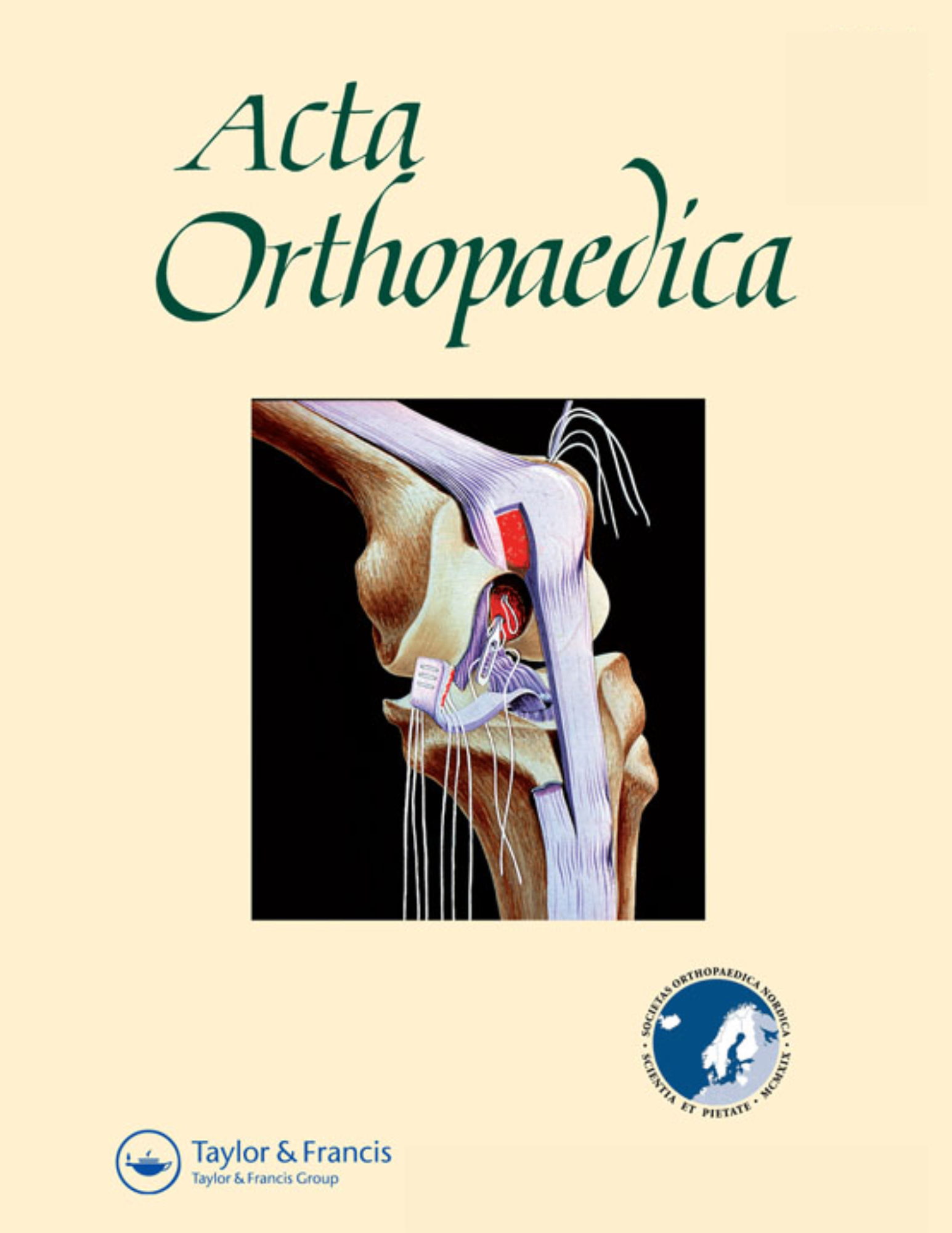
Preoperative dose of etoricoxib reduces postoperative morphine consumption

Preoperative dose of etoricoxib reduces postoperative morphine consumption
Evaluation of a single preoperative dose of etoricoxib for postoperative pain relief in therapeutic knee arthroscopy
Acta Orthop. 2012 Dec;83(6):642-7. doi: 10.3109/17453674.2012.747053. Epub 2012 Nov 9Did you know you're eligible to earn 0.5 CME credits for reading this report? Click Here
Synopsis
A total of 66 patients undergoing elective therapeutic knee arthroscopy were included in this trial to examine the effects of etoricoxib on post operative analgesia and opioid consumption. Patients received either 120 mg of etoricoxib or a placebo. Over the first 24 hours, the total postoperative morphine consumption was higher in the placebo group (24 mg) than the etoricoxib group (9 mg). The etoricoxib group also demonstrated reduced pain intensity levels at rest and patient satisfaction with the analgesia provided was greater during the first postoperative day.
Was the allocation sequence adequately generated?
Was allocation adequately concealed?
Blinding Treatment Providers: Was knowledge of the allocated interventions adequately prevented?
Blinding Outcome Assessors: Was knowledge of the allocated interventions adequately prevented?
Blinding Patients: Was knowledge of the allocated interventions adequately prevented?
Was loss to follow-up (missing outcome data) infrequent?
Are reports of the study free of suggestion of selective outcome reporting?
Were outcomes objective, patient-important and assessed in a manner to limit bias (ie. duplicate assessors, Independent assessors)?
Was the sample size sufficiently large to assure a balance of prognosis and sufficiently large number of outcome events?
Was investigator expertise/experience with both treatment and control techniques likely the same (ie.were criteria for surgeon participation/expertise provided)?
Yes = 1
Uncertain = 0.5
Not Relevant = 0
No = 0
The Reporting Criteria Assessment evaluates the transparency with which authors report the methodological and trial characteristics of the trial within the publication. The assessment is divided into five categories which are presented below.
4/4
Randomization
3/4
Outcome Measurements
2/4
Inclusion / Exclusion
4/4
Therapy Description
3/4
Statistics
Detsky AS, Naylor CD, O'Rourke K, McGeer AJ, L'Abbé KA. J Clin Epidemiol. 1992;45:255-65
The Fragility Index is a tool that aids in the interpretation of significant findings, providing a measure of strength for a result. The Fragility Index represents the number of consecutive events that need to be added to a dichotomous outcome to make the finding no longer significant. A small number represents a weaker finding and a large number represents a stronger finding.
Why was this study needed now?
In order to reduce postoperative morphine consumption, various studies have been conducted on the postoperative or intraoperative use of coxibs. Etoricoxib has the longest duration of analgesic action (lasting 22-24 hours) out of the currently registered COX-2 inhibitors. Several studies have confirmed its capacity to provide pain relief after various types of abdominal and trauma surgeries. However, no data exists on the efficacy of the preoperative administration of a single dose of etoricoxib for the attenuation of postoperative pain after therapeutic knee arthroscopy (performed under general anesthesia). Hence, this study is aimed to determine whether a single preoperative dose of 120 mg etoricoxib before knee arthroscopy would reduce patients’ postoperative opioid consumption.
What was the principal research question?
Does a single preoperative dose of 120 mg etoricoxib reduce the need for additional opioids after therapeutic arthroscopic knee surgery, measured over 24 hours?
What were the important findings?
- During the 24 hours, patients who received etoricoxib required 14.7 mg (95% CI: 10.2-19.2) less morphine than the patients who received the placebo (p < 0.001, ANOVA).
- Etoricoxib group demonstrated lower overall pain at rest than the placebo group (p = 0.01, ANOVA), but there was no statistically significant difference for overall pain on movement (p = 0.07).
- Patients who received etoricoxib experienced significantly less pain at rest and on movement at 0, 4, 6, and 24 h.
- The etoricoxib group produced significantly higher patient satisfaction at each time point than the control group (p < 0.001 at 24h).
- The difference in the number of patients suffering adverse events was not statistically significant between the two groups (p = 0.3, Fisher's exact test).
What should I remember most?
Patients given 120 mg of etoricoxib before therapeutic arthroscopy had about a 60 percent reduction in morphine consumption and felt less pain during the first 24 postoperative hours. Despite the fact that patients could dose their morphine in accordance to their needs, etoricoxib provided exceptional analgesia; hence, while the placebo group used more than twice the amount of morphine than the intervention group, they had far inferior analgesia and were less satisfied with their analgesic therapy
How will this affect the care of my patients?
Premedication with etoricoxib appears to provide a number of possible advantages for patients undergoing knee arthroscopy which include; a reduction in opioid consumption, postoperative pain and an improvement in patient satisfaction. However, the sample size of this study was small and larger trials are required to confirm its findings.
Learn about our AI Driven
High Impact Search Feature
Our AI driven High Impact metric calculates the impact an article will have by considering both the publishing journal and the content of the article itself. Built using the latest advances in natural language processing, OE High Impact predicts an article’s future number of citations better than impact factor alone.
Continue



 LOGIN
LOGIN

Join the Conversation
Please Login or Join to leave comments.